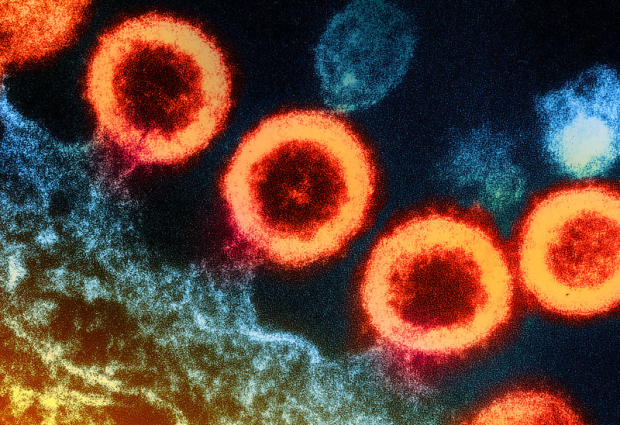
HIV
The human immunodeficiency virus (HIV), which causes AIDS, affects around 38 million people worldwide, according to the WHO.
Published on 12 March 2024
In brief
The human immunodeficiency virus (HIV), which causes AIDS, affects around 38 million people worldwide, according to the WHO. Research is continuing its efforts to better understand this virus and develop new tools to end the epidemic.
Over the past 40 years, research has led to considerable progress in HIV prevention and testing, as well as in the care of people living with the virus. Nevertheless, this virus continues to impose challenges on researchers in the development of a vaccine or curative treatment, for example. The research teams continue to remain active in deepening fundamental knowledge about HIV, improving existing systems and developing new innovative approaches to fighting HIV/AIDS worldwide.
Research priorities
- Research priorities as defined by our agency are:
- Vaccine research, cure and remission (i.e. control of the virus without taking treatment).
- HIV prevention, including pre-exposure prophylaxis (PrEP), prevention of mother-to-child transmission of the virus and cases of failure of prevention initiatives.
- HIV testing and access to treatment.
Research into co-morbidities, including mental health, their prevention and treatment.
Publications
- Landman et al. A 4-days-on and 3-days-off maintenance treatment strategy for adults with HIV-1 (ANRS 170 QUATUOR): a randomised, open-label, multicentre, parallel, non-inferiority trial. Lancet HIV 2022
- Molina JM, et al. Daily and on-demand HIV pre-exposure prophylaxis with emtricitabine and tenofovir disoproxil (ANRS PREVENIR): a prospective observational cohort study. Lancet HIV 2022
- Molinos-Albert LM et al. Transient viral exposure drives functionally-coordinated humoral immune responses in HIV-1 post-treatment controllers. Nature Comm 2022
- Perdomo-Celis, F., et al. “Reprogramming Dysfunctional Cd8+ T Cells to Promote Properties Associated with Natural Hiv Control.” J Clin Invest 2022
- De Castro N, et al. Standard dose raltegravir or efavirenz-based antiretroviral treatment for patients co-infected with HIV and tuberculosis (ANRS 12 300 Reflate TB 2): an open-label, non-inferiority, randomised, phase 3 trial. Lancet Infect Dis. 2021
- Becquet V, et al. A community-based healthcare package combining testing and prevention tools, including pre-exposure prophylaxis (PrEP), immediate HIV treatment, management of hepatitis B virus, and sexual and reproductive health (SRH), targeting female sex workers (FSWs) in Côte d’Ivoire: the ANRS 12381 PRINCESSE project. BMC Public Health. 2021
- Mora M, et al. Living conditions, HIV and gender affirmation care pathways of transgender people living with HIV in France: a nationwide, comprehensive, cross-sectional, community-based research protocol (ANRS Trans&HIV). BMJ Open 2021
